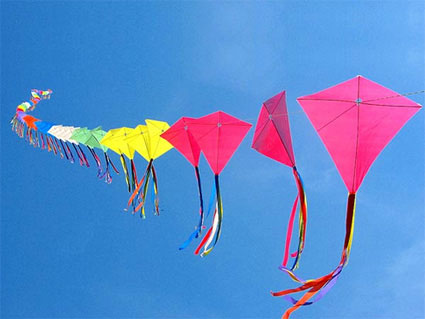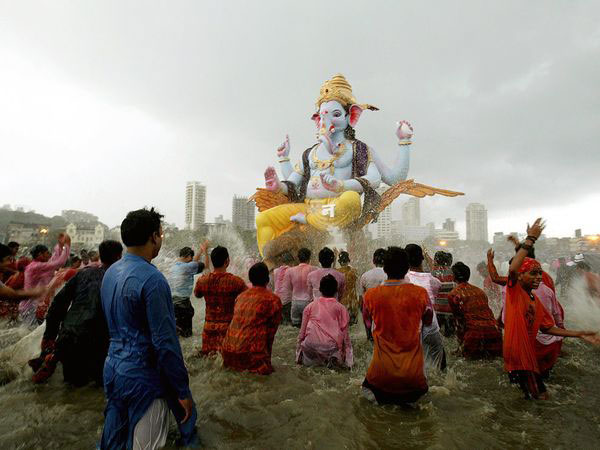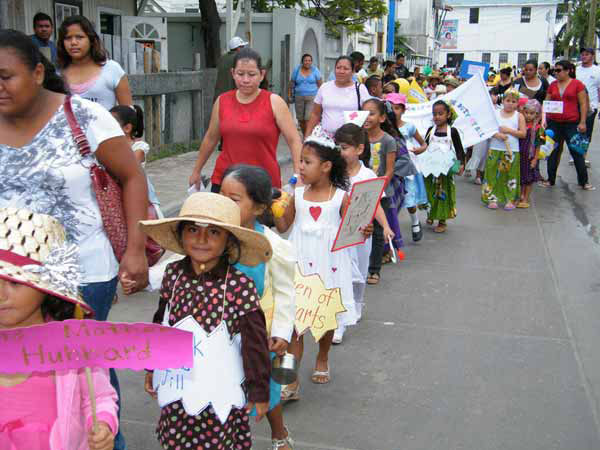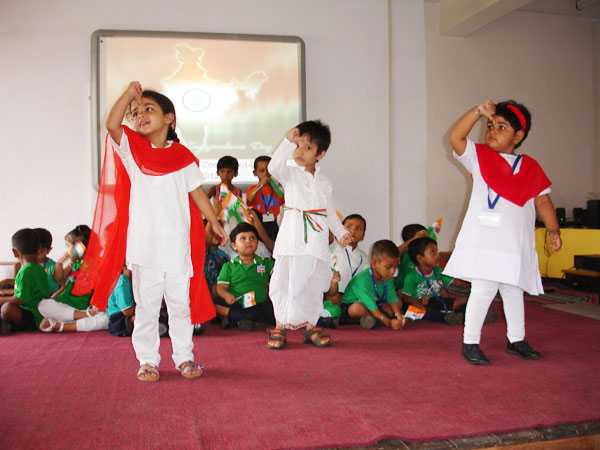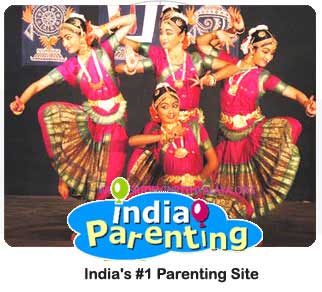Makar Sankranti is an important festival of the Hindus. Read about the significance of Makar Sankranti, the traditions and rituals of this festival. Find out why is Makar Sankranti celebrated and how Makar Sankranti, the harvest festival, is celebrated in different parts of India. Makar Sankranti which is also known as Sankranti is a very auspicious day for Hindus. Makar Sankranti is the day the sun enters the Tropic of Capricorn. Makar means Capricorn and Sankrant stands for transition. In this article Introduction to Makar Sankranti Traditions and Rituals Celebrations in Different Parts of the CountryIntroduction to Makar Sankranti Makar Sankranti almost always falls on the same day every year that is the 14th of January. Makar Sankranti is a harvest festival and is celebrated as a form of giving thanks to nature. It marks the beginning of the harvest season. The sun begins its journey northwards (Uttarayana) as opposed to the south. This is considered to be an auspicious time and is also said to be the holy period of transition. On this day, the sun is worshipped. It is believed that a person who dies during this auspicious period of Uttarayana is lucky as he goes to heaven. A person who dies during this period is said to become free from the cycle of rebirth. Traditions and Rituals On the day of Sankranti it is said that the Lord Sun (Surya) visits his son Shani. It is said that generally the two do not get along well but not this day, the Sun visits his son forgetting all differences of opinion. Hence, Makar Sankranti is considered to be a day to forget sourness and bitter relationships. One must forget all the bitterness or ill-feelings and talk sweetly with everybody. On this day, people take a dip in the holy Ganga and offer water to the Surya (Sun God). By doing this, it is said that the sins will be cleansed and one can attain salvation. Taking a dip at Prayag is considered to be extremely good on this day. It is very good to chant the Gayatri Mantra on this day. On this day, people also pray to Goddess Saraswati. Goddess Saraswati who is considered the God of knowledge is worshipped. People also offer prayers to their departed ancestors. On this day, people make offerings to the animal kingdom, particularly the cow. Cow which plays a vital role in agriculture is worshipped. Birds, animals and fish are fed by young girls as sign of sharing. Celebrations in Different Parts of the Country Makar Sankranti is celebrated differently in different parts of the country. In Maharashtra On Makar Sankranthi in Maharahtra, people celebrate by offering each other tilgul-laddus. These are made from sesame seeds, sugar and jaggery. People exchange these sweets with the words tilgul ghya, god god bola. This means have these tilguls and speak sweet words. What it actually means is accept these tilguls and forget any ill-feelings or differences and foster good relations. In Maharashtra, married women are invited home for haldi-kumkum. The woman of the house gives them a gift of any new utensil which she has purchased. In Gujarat In Gujarat, Makar Sankranti is celebrated as Uttarayan. On this day, people go to their terrace and fly kites along with family members and friends. People offer their respects and worship the Sun God by flying kites towards the sky. People exchange gifts and prepare Undhiyu which is a mixed vegetable dish. In Kerala Makar Sankranti is celebrated in Kerala at Sabarimala. The forty days of spiritual discipline undertaken by devotees of Ayappa comes to an end on this day with a big celebration at Sabarimala. In Bengal In West Bengal, Sankranti is known as Pous Parbon - a harvest festival. Every year, a very big mela (fair) is held at Ganga Sagar which a large number of pilgrims from all over the country attend. In Uttar Pradesh In Uttar Pradesh, Sankranti is celebrated as Khichiri. Every twelve years at this time the Kumbh Mela is held here at Prayag in Allahabad at Uttar Pradesh. Bathing on the day of Makar Sankranti in the banks of the holy rivers is considered very auspicious. Millions of people take a dip in the holy waters on this day. In Madhya Pradesh, Makar Sankranti is celebrated as Sukarat or Sakarat. Makar Sankranti is celebrated in Punjab as Lohri and in Tamil Nadu as Pongal. Makar Sankranti is also celebrated by other different names in various parts of India like Orissa, Goa, Assam, the coastal regions, and even among tribals. The traditions and celebrations might be different, but each of these festivals coveys the same message of brotherhood and peace.
Makar Sankranti is an important festival of the Hindus. Read about the significance of Makar Sankranti, the traditions and rituals of this festival. Find out why is Makar Sankranti celebrated and how Makar Sankranti, the harvest festival, is celebrated in different parts of India. Makar Sankranti which is also known as Sankranti is a very auspicious day for Hindus. Makar Sankranti is the day the sun enters the Tropic of Capricorn. Makar means Capricorn and Sankrant stands for transition.
Introduction to Makar Sankranti
Makar Sankranti almost always falls on the same day every year that is the 14th of January.
Makar Sankranti is a harvest festival and is celebrated as a form of giving thanks to nature. It marks the beginning of the harvest season.
The sun begins its journey northwards (Uttarayana) as opposed to the south. This is considered to be an auspicious time and is also said to be the 'holy period of transition'. On this day, the sun is worshipped.
It is believed that a person who dies during this auspicious period of Uttarayana is lucky as he goes to heaven. A person who dies during this period is said to become free from the cycle of rebirth.
Traditions and Rituals
On the day of Sankranti it is said that the Lord Sun (Surya) visits his son Shani. It is said that generally the two do not get along well but not this day, the
Sun visits his son forgetting all differences of opinion. Hence, Makar Sankranti is considered to be a day to forget sourness and bitter relationships. One must forget all the bitterness or ill-feelings and talk sweetly with everybody.
On this day, people take a dip in the holy Ganga and offer water to the Surya (Sun God). By doing this, it is said that the sins will be cleansed and one can attain salvation. Taking a dip at Prayag is considered to be extremely good on this day.
It is very good to chant the Gayatri Mantra on this day.
On this day, people also pray to Goddess Saraswati. Goddess Saraswati who is considered the God of knowledge is worshipped. People also offer prayers to their departed ancestors.
On this day, people make offerings to the animal kingdom, particularly the cow. Cow which plays a vital role in agriculture is worshipped. Birds, animals and fish are fed by
young girls as sign of sharing.
Celebrations in Different Parts of the Country
Makar Sankranti is celebrated differently in different parts of the country.
In Maharashtra On Makar Sankranthi in Maharahtra, people celebrate by offering each other tilgul-laddus. These are made from sesame seeds, sugar and jaggery. People exchange these sweets with the words '
tilgul ghya, god god bola'. This means have these tilguls and speak sweet words.
What it actually means is accept these tilguls and forget any ill-feelings or differences and foster good relations.
In Maharashtra, married women are invited home for haldi-kumkum. The woman of the house gives them a gift of any new utensil which she has purchased.
In Gujarat In Gujarat, Makar Sankranti is celebrated as
Uttarayan. On this day, people go to their terrace and fly kites along with family members and friends. People offer their respects and worship the Sun God by flying kites towards the sky. People exchange
gifts and prepare Undhiyu which is a mixed vegetable dish.
In Kerala Makar Sankranti is celebrated in Kerala at Sabarimala. The forty days of spiritual discipline undertaken by devotees of
Ayappa comes to an end on this day with a big celebration at Sabarimala.
In Bengal In West Bengal, Sankranti is known as
Pous Parbon - a harvest festival. Every year, a very big
mela (fair) is held at Ganga Sagar which a large number of pilgrims from all over the country attend.
In Uttar Pradesh In Uttar Pradesh, Sankranti is celebrated as
Khichiri.
Every twelve years at this time the
Kumbh Mela is held here at Prayag in Allahabad at Uttar Pradesh. Bathing on the day of Makar Sankranti in the banks of the holy rivers is considered very auspicious. Millions of people take a dip in the holy waters on this day.
In Madhya Pradesh, Makar Sankranti is celebrated as
Sukarat or Sakarat.
Makar Sankranti is celebrated in Punjab as
Lohri and in Tamil Nadu as Pongal.
Makar Sankranti is also celebrated by other different names in various parts of India like Orissa, Goa, Assam, the coastal regions, and even among tribals.
The traditions and celebrations might be different, but each of these festivals coveys the same message of brotherhood and peace.












